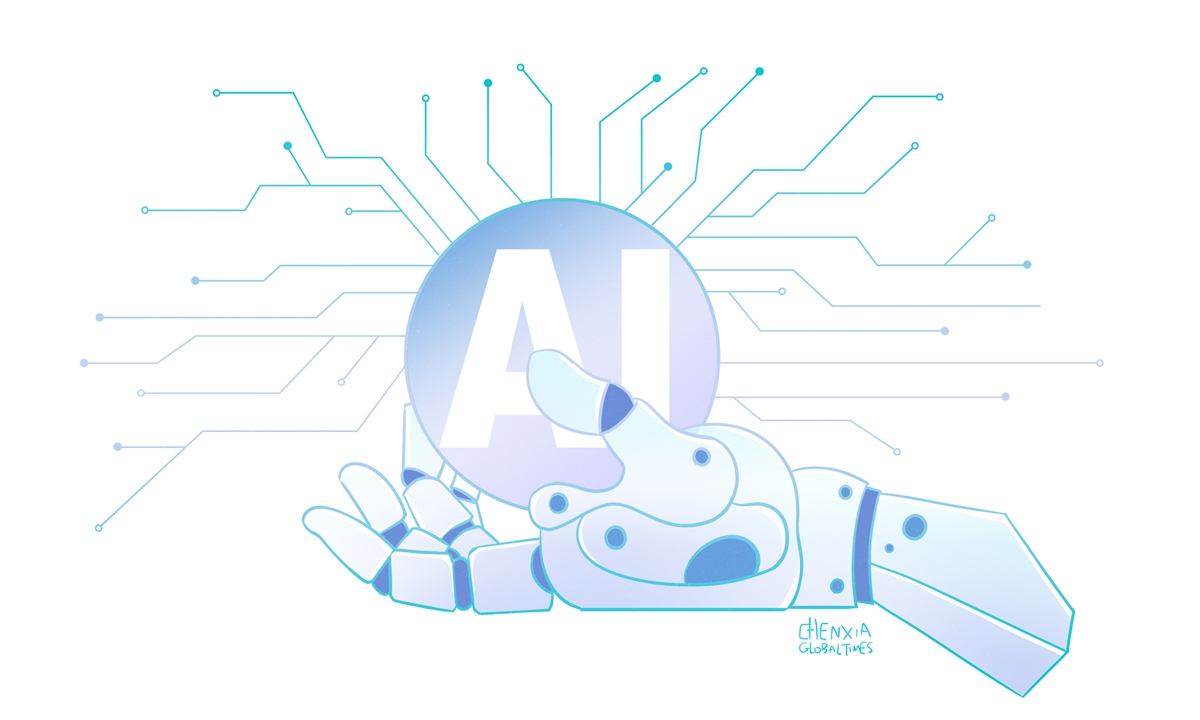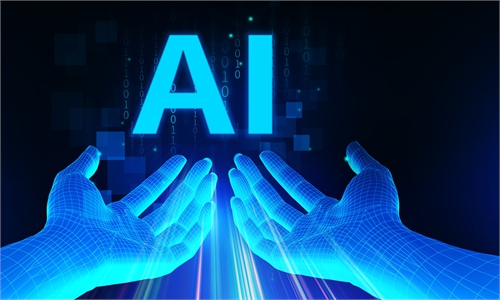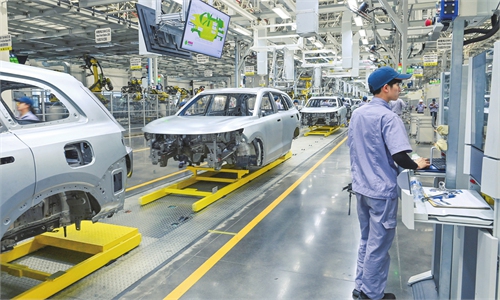
Illustration: Chen Xia/GT
A summit co-hosted by South Korea and Britain adopted a declaration on Tuesday on promoting safe, innovative and inclusive artificial intelligence (AI) to address the challenges and opportunities associated with the fast-evolving technology, the Yonhap News Agency reported.The two-day meeting was a follow-up to November's AI Safety Summit held in the UK. Wang Yun-jong, a deputy director of national security in South Korea, was quoted by the Voice of America as saying that the latest conference's agenda was expanded beyond the first AI Safety Summit, and the participants discussed not only the risks posed by AI but also its positive aspects and how it can contribute to humanity in a balanced manner.
AI has the potential to improve productivity, boost creativity and enhance the human experience, but there is a lingering question: How can we enable a wider range of people in the world to share the dividends of AI development and promote more balanced global development?
Solving this problem requires extensive cooperation among both developed and developing countries. We must uphold true multilateralism, counter economic hegemony and oppose any kind of decoupling or de-globalization.
AI is a hot topic, and many companies will benefit from its development. This is especially true for enterprises operating in developing countries. With the advancement of AI technology, there is a high likelihood of game-changing solutions to unique challenges that developing economies face, such as uneven access to education and healthcare.
In developing countries, it's increasingly necessary for them to scale up their effective AI investment to turn the tech buzzword into an economic engine, strengthen mutually beneficial cooperation and make their involvement in AI development more noticeable to the rest of the world.
Global AI governance lags far behind the development of AI technologies and businesses. The world urgently needs to reach a consensus and tacit understanding on this issue. In this process, the voices of developing countries should be listened to. All sides need to maintain consultation, work toward common development and consider the interests of all sides in order to ensure a firm foundation for cooperation.
On Tuesday, as the AI Seoul Summit began, US Secretary of Commerce Gina Raimondo released a strategic vision for the US Artificial Intelligence Safety Institute. She said that safety fosters innovation, so "it is paramount that we get this right and that we do so in concert with our partners around the world to ensure the rules of the road on AI are written by societies that uphold human rights, safety and trust."
The rules of AI development should be written by all participants in global supply chains, rather than by certain countries selected by Washington based on US values and interests.
The generative AI investment frenzy is sweeping the world. Apparently, AI won't be exempt from US efforts to prolong its technological hegemony in the world. The US wants to maintain its dominance in almost all high-tech fields and is willing to take unilateral measures to suppress its competitors, despite the fact that its economic bullying disrupts the global industrial chain and hinders the development of the global economy.
AI will undoubtedly bring significant benefits for human development and progress, but it may also pose unpredictable risks and complex challenges. At the very least, AI should not be used as a tool to politicize economic issues and exert economic hegemony.
The AI industry is currently in a critical period of development. Common development is in line with the general trend of technological advancements. It is believed that the majority of world economies oppose the formation of small circles based on ideology and confrontation.
The author is a reporter with the Global Times. bizopinion@globaltimes.com.cn



